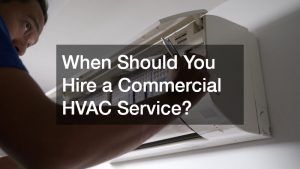This article explores the essential steps and considerations in finding reliable and effective compressed air solution providers. Proper compressed air solutions are critical for various industries, and finding the right provider can significantly impact operational efficacy and cost-effectiveness.
What Factors Should You Consider When Choosing a Compressed Air Solution Provider?
Evaluate Technical Expertise and Experience
Assessing the technical expertise of a compressed air solution provider is crucial for ensuring system reliability and efficiency. Providers with significant industry experience have a thorough understanding of various sector-specific needs and challenges.
This expertise can lead to the development of customized solutions that enhance performance and reduce downtime.
A provider’s technical know-how should also be evaluated based on their ability to innovate and integrate the latest technologies. Companies with a strong track record of successful projects and satisfied clients often demonstrate this capability. Their experience can be a valuable resource in optimizing your compressed air systems to meet evolving industry standards.
Additionally, technical expertise isn’t just limited to the installation of equipment; it also involves understanding regulatory compliance and safety protocols. Providers with extensive experience can help navigate these complexities. This can result in smoother operations and reduced risk of legal issues, contributing to greater operational stability.
Assess the Range of Services Offered
The range of services a provider offers is a key consideration in selecting a compressed air solution partner. It’s essential to examine whether their solutions are adaptable to different industry needs. A comprehensive provider will offer design, installation, maintenance, and consulting services to ensure all aspects of compressed air systems are covered.
Adaptability is particularly important in industries with unique demands or challenging environments. A provider that can customize solutions to your specific requirements can better support your operational goals. This flexibility can also enhance system longevity and increase return on investment.
Furthermore, service range assessment should include the provider’s ability to scale solutions as your business grows. Ensure they have the capacity to expand services or adjust configurations to accommodate future developments. This foresight can facilitate seamless transitions and maintain efficiency over time.
Research Customer Support and Maintenance Services
Reliable customer support and maintenance services are vital for the long-term success of compressed air systems. Prompt and efficient support minimizes downtime and helps resolve issues before they escalate. Providers offering 24/7 support often guarantee faster response times, which is critical during unexpected failures.
Maintenance services should be thorough, covering routine checks, parts replacement, and system audits. Regular maintenance not only extends equipment lifespan but also enhances performance. Providers that proactively suggest improvements based on maintenance data can provide further value by optimizing operational efficiency.
Researching customer testimonials and case studies can provide insights into a provider’s support quality. A history of maintaining positive relationships and receiving accolades for customer service is a strong indicator of reliability. Choosing a provider with excellent support can therefore reduce stress and improve operational stability.
How Can You Ensure Cost-Effectiveness and Efficiency with Compressed Air Providers?
Analyze Initial Costs and Long-term Savings
When selecting a compressed air solution provider, it’s crucial to balance initial costs with potential long-term savings. While some systems might demand a hefty upfront investment, they could lead to significant energy savings over time. Investing in high-efficiency solutions can thus reduce operational costs in the long run.
Careful cost analysis should consider the impact of maintenance expenses, equipment lifespan, and energy consumption. Providers offering financing options or flexible payment plans can also ease the initial financial burden. The overall cost-effectiveness is determined by comparing the total cost of ownership against the benefits received.
In addition, procurement decisions should account for potential productivity gains from reduced downtime. Efficient systems decrease the likelihood of interruptions and enhance workflow continuity. This boost in operational efficiency can translate into considerable savings and profit over time.
Look for Energy Efficiency Certifications and Awards
Energy efficiency is a critical factor in assessing the effectiveness of compressed air solutions. Providers recognized for energy-efficient systems and environmentally-friendly practices often hold certifications or awards. These accolades can indicate advanced technology and a commitment to sustainability.
Choosing a provider with a track record in energy efficiency can lead to significant reductions in energy consumption. This not only lowers utility bills but also reduces the environmental footprint of operations. Companies with such credentials are likely to offer forward-thinking solutions that align with corporate sustainability goals.
Moreover, partnering with a provider that prioritizes efficiency can enhance corporate reputation and adherence to environmental regulations. This can build trust with stakeholders and improve brand image. Consequently, energy efficiency considerations should play a prominent role in the selection process.
Evaluate Equipment Quality and Technological Advancements
The quality of equipment provided is integral to the effectiveness of compressed air solutions. High-quality, technologically advanced equipment is crucial for ensuring optimal performance and reliability. Providers should demonstrate a commitment to staying current with industrial innovations.
Equipment quality directly influences factors such as system efficiency, noise level, and operation safety. Advanced technology can contribute to streamlined processes, reduced energy consumption, and enhanced precision. This dedication to excellence can be a significant factor in maintaining competitive operational efficiency.
Additionally, employing state-of-the-art equipment can better position companies against competitors by maximizing productivity. Leveraging technological advancements also prepares businesses for future industry developments. As such, evaluating the technological capabilities of a provider is a strategic component in decision-making.
.







